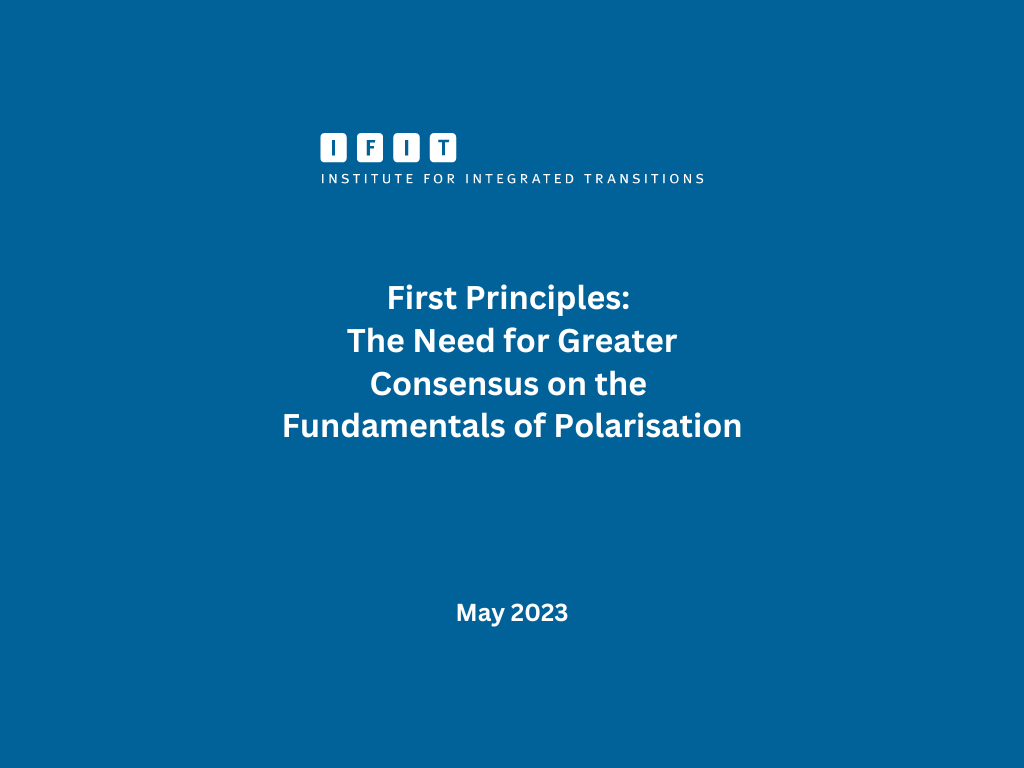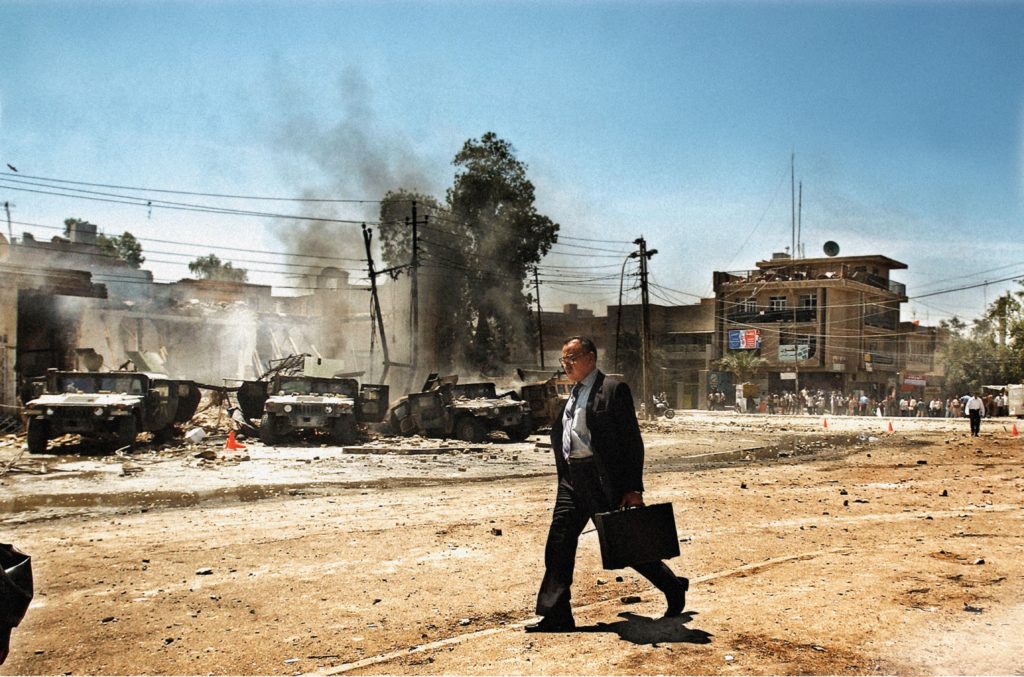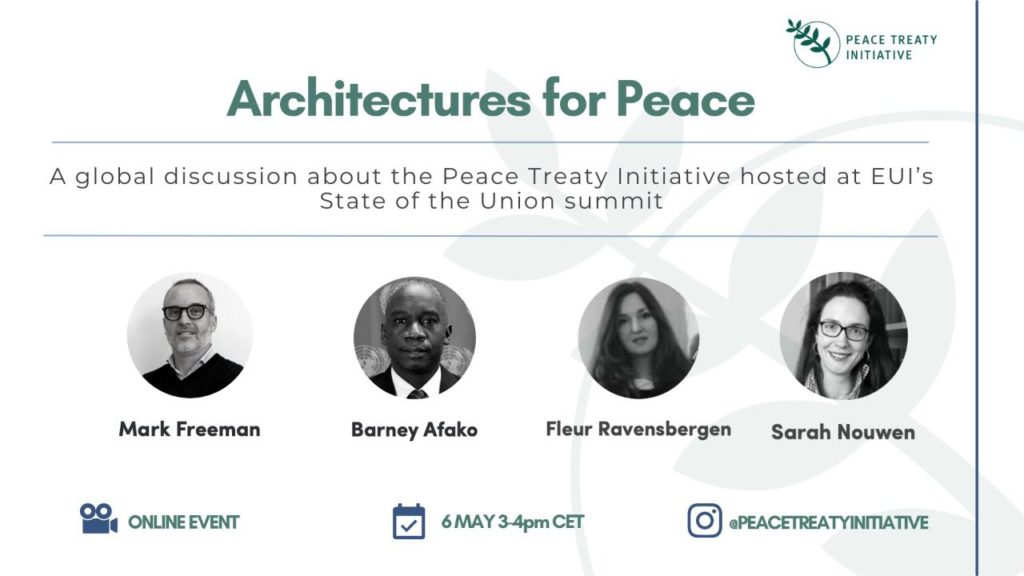Expert Team: Practice Groups
Hanny Megally is a Senior Fellow at New York University’s Center on International Cooperation (CIC), where he focuses on violent extremism, human rights and rule of law. Prior to joining CIC, Megally served as Chief of the Asia, Pacific, Middle East and North Africa Branch at the UN Office of the High Commissioner for Human Rights in Geneva.
Previously, he was Vice-President for Programs at the International Center for Transitional Justice, which he joined in 2003. He has nearly forty years of experience in the field of human rights, transitional justice and conflict resolution, having begun his professional career at the International Secretariat of Amnesty International in 1977. From 1984 to 1994, he headed the Middle East Research Department at Amnesty International in London. He later ran the Ford Foundation’s social justice program in the Middle East from the Foundation’s Cairo office, and from 1997 to 2003 he served as the Executive Director of the Middle East and North Africa Division of Human Rights Watch.
Mr. Megally has overseen country programs and traveled extensively in the MENA and Asia/Pacific regions, including leading human rights investigation missions and conducting high-level discussions with heads of state and governments. He is a widely sought after commentator on human rights and political developments, particularly in the MENA region.
You may also be interested in
Habib Nassar is the Director for Policy and Research at Impunity Watch. He is a lawyer and activist with more than fifteen years of experience working on human rights and transitional justice issues. Before joining Impunity Watch, he worked at PILnet: The Global Network for Public Interest Law where he served as Acting Executive Director and Director for the Middle East and North Africa, a region where he developed the organisation’s programming in the area of strategic litigation and clinical legal education. Prior to PILnet, he developed extensive experience working on transitional justice in a variety of contexts. He advised the UN OHCHR on transitional justice in North Africa. He also worked at the International Center for Transitional Justice where he held several positions including Director of the Middle East and North Africa Program in the wake of the “Arab Spring”. Before, he worked for several grassroots and international human rights groups on matters including enforced disappearance, human rights defenders, and elections. He has taught transitional justice as well as human rights at Hunter College in New York. He has an LL.M. from New York University, a Master of International Law from Université Paris II and a law degree from Université Saint-Joseph in Beirut.
Working languages: English, Arabic, French, Portuguese
You may also be interested in
Dr. Castresana has been a practicing attorney, magistrate, investigating judge, and prosecutor for over 30 years. Currently, he is the UN Commissioner for Human Rights in South Sudan and advises the Special Jurisdiction for Peace in Colombia.
In 1989, he entered the Public Prosecutor’s career in Spain. Since then, he has worked in the prosecutor’s offices of Barcelona and Madrid, as well as in the special Anti-drug and Anti-corruption prosecutor’s offices. In 2005, he was promoted to the Prosecutor’s Office of the Supreme Court of Spain, and later to the Court of Auditors.
In 2007, the UN Secretary-General appointed Dr. Castresana as Commissioner against Impunity in Guatemala, with the category of UN Assistant Secretary-General. Dr. Castresana held this position until 2010. In recognition of his work in Guatemala, he received the Stella della Solidarietà as Commendatore della Repubblica Italiana, the Grand Cross of the Order of Quetzal of Guatemala, the Order of Civil Merit of Spain, and was named Officer of the Legion of Honor of France. Dr. Castresana is also the recipient of the National Human Rights Award in Spain and holds the title of Doctor Honoris Causa from the University of Guadalajara (Mexico), the Central University of Chile, and the National Institute of Criminal Science of Mexico (INACIPE).
Dr. Castresana has served as an expert on a number of legal missions, including those of the Council of Europe, the EU, the UN, and the World Bank, among others. He has written multiple articles published in media and specialized legal journals and has lectured at universities and other institutions in Europe and America (including Harvard, Yale, NYU, CUNY, Drexel, Berkeley, Stanford, the US Departments of Defense and of State). He has also been a Professor of Criminal Law at Carlos III University of Madrid and International Criminal Law at the University of San Francisco (California), Haverford College (Pennsylvania), and the Centro Universitario de Estudios Financieros (CUNEF) in Madrid.
In 2016, he was awarded the First Prize for Transparency, Integrity, and the Fight against Corruption from the General Council of the Spanish Bar and Transparency International, and in 2024, the Medal of the Barcelona Bar Association.
You may also be interested in
Barney Afako is a Ugandan lawyer with vast experience in conflict mediation. In June 2018, he was selected as the inaugural IFIT Alex Boraine Fellow: a fellowship established in honour of IFIT’s first Board president, Dr Boraine, who passed away in 2018.
Afako has worked in the fields of human rights, refugee law, criminal justice and transition issues in several countries. He is a part-time tribunal judge in the United Kingdom and he spent several years as a member of the UN Mediation Support Unit Standby Team.
Between 2006 and 2008, Afako was the Chief Legal Advisor to the Southern Sudanese mediation in the Juba Peace Talks between the Government of Uganda and the Lord’s Resistance Army. In that capacity, he developed and drafted the Final Peace Agreement, with particular responsibility for the Agreement on Reconciliation and Accountability. These were the first efforts where transitional justice issues were addressed in a context in which the International Criminal Court was already active.
In 2009, he advised the African Union Panel on Darfur (AUPD), chaired by former South African president, Thabo Mbeki, and was responsible for drafting the justice recommendations of the AUPD’s report. From 2010, he has been an adviser to the African Union High Level Implementation Panel on Sudan and South Sudan, which was responsible for facilitating negotiations between Sudan and South Sudan on secession issues and continues to work with both states on a range of issues.
Afako has provided advice to other peace processes on addressing the past. In Uganda, he has advised the Government and particularly the Amnesty Commission on issues of peacebuilding and reconciliation.
He is the author of several publications on justice and peace issues. He is a regular commentator in the international media – including print, radio and television – on political and international justice developments in Africa.
You may also be interested in
Mr. Nadery is the former chairman of the Independent Administrative Reform and Civil Service Commission of Afghanistan. Prior to joining the Commission he was senior advisor to the President on Public and Strategic Affairs. He also served as Ambassador At-large for Freedom of Expression and as a member of the government negotiation team at the peace talks in Doha.
Previously Mr. Nadery served as director of Afghanistan Research and Evaluation (AREU) for three years. AREU is Afghanistan’s globally highest-ranked research institute. He is also the founder and was chairman of the Free and Fair Election Foundation of Afghanistan. He served for 7 years as Commissioner of the Afghan Independent Human Rights Commission (AIHRC). Mr. Nadery was also chairman of the board of directors of Open Society Foundation-Afghanistan. He represented Afghan youth at the main UN peace talks for Afghanistan in the Bonn Conference in 2001, where the Post-Taliban interim government was formed.
Prior to his appointment at the AIHRC, Mr. Nadery served as the director of Afghanistan programs for Global Rights. He also served as the Spokesperson for the Emergency Loya Jirga (Grand Assembly) that elected the head of transitional government in 2002. During that time, Mr. Nadery was elected as a delegate for the Emergency Loya Jirga and served as a representative of civil society.
Mr. Nadery has written extensively on politics, human rights, women’s rights and democracy in Afghanistan. He taught constitutional law at the American University of Afghanistan in 2012. He also served as member of Global Agenda Council on Fragile States of the World Economic Forum. He led No Peace Without Justice support missions in Libya for two years after the 2012 revolution. He is also a member of the Board of Editors of the International Journal on Transitional Justice and appears regularly on BBC, New York Times, Washington Post and other national and international media. In 2005, he was recognized as an “Asian Hero” by Time Magazine; in 2008, he was named as Young Global Leader by the World Economic Forum.
Mr. Nadery studied law and political sciences at Kabul University and earned his master’s degree in International Relations from George Washington University. He also studied leadership at the Kennedy School of Government at Harvard University.
You may also be interested in
Ambassador Yakobashvili is founder and president of the TY Strategies LLC, a boutique consulting firm specializing in advising governments, non-governmental institutions and business communities in the U.S., Europe and Eurasia. Prior to that, he served as an Executive Vice President of PASS LLC, a global social impact consultancy firm. In 2014, he founded and led the Washington, DC-based New International Leadership Institute, a not-for profit organization dedicated to reforms, good governance and anti-corruption. Prior to that, he held the position of Senior Transatlantic Fellow at the German Marshall Fund of the United States. From early February 2011 to March 2013, he served as Ambassador of Georgia to the United States. Prior to his posting, he was Deputy Prime Minister and State Minister for Reintegration in the Government of Georgia.
Ambassador Yakobashvili is a career diplomat who joined the Ministry of Foreign Affairs of Georgia in 1991. He holds the diplomatic rank of Ambassador Extraordinary and Plenipotentiary granted by the President of Georgia.
He is a graduate of the Department of Physics from the Tbilisi State University. In 1998 he was trained in mid-career Diplomatic Courses at the Centre of Political and Diplomatic Studies at Oxford University. He is a Yale World Fellow (2002) and participated in the Executive Security Program at Harvard University’s Kennedy School of Government (2004). In 2006, he was a visiting researcher at the Silk Road Study Centre of Uppsala University, Sweden.
Ambassador Yakobashvili co-founded and has served as an Executive Vice-President of the Georgian Foundation for Strategic and International Studies (GFSIS), a leading think tank in the Caucasus region. He also co-founded the Atlantic Council of Georgia, as well as the Council of Foreign Relations of Georgia. He frequently contributes to international printed and digital media on issues of regional security and transformation.
In February 2012, Ambassador Yakobashvili was decorated with Presidential Medal of Excellence. He speaks Georgian, English, Russian and Hebrew.
You may also be interested in
Zuhra Halimova is senior analyst at the Digital Ecosystem Country Assessment (DECA), part of the USAID US Support for Economic Growth in Asia (US-SEGA) project. She also conducts research on the digital transformation of the Central Asia region, working with the EU, World Bank, USAID, GIZ and Internews/RDR. Zuhra is strategic advisor to Women in Digital Transformation.
Previously, Zuhra was a visiting scholar at the Institute for European, Russian and Eurasian Studies at the Elliott School of International Affairs, George Washington University. In this capacity she conducted critical analytical discussions with stakeholders, which she developed into a book manuscript, Reassessing Foreign Aid in Eurasia: Donors’ Agendas and Local Perceptions.
For more than 20 years, she was the executive director of the Open Society Institute Assistance Foundation in Dushanbe, Tajikistan. In this role, she worked closely with governmental and non-governmental stakeholders and international organisations, in addition to independent media and business.
Zuhra holds a master’s degree in international relations from the Fletcher School of Law and Diplomacy at Tufts University. She also has a master’s in oriental studies from Tajik State National University. Zuhra previously completed the US-South Asia Leader Engagement Program, “Terrorism as Threat to Global Security”, part of Harvard Kennedy School of Government’s Executive Education Program. She has also completed the Global Leaders Executive Education Program at INSEAD-OSF.
You may also be interested in
Dr. Timothy Nielander works on a wide range of public-private cooperation projects focused on improving collaboration and systems for facilitating development assistance and innovative approaches to funding and addressing global challenges. He has served as General Counsel and Managing Director of Corporate Services for Gavi the Vaccine Alliance, as well as an advisor and a Board Member for development programs focused on the Millennium/Sustainable Development Goals. He has developed programs with multinational and private participants based in Europe, the Middle East, Caribbean/Central America, Southeast Asia, Africa and the South Pacific across a range of issues: disaster planning and response, health, education, agriculture, financial inclusion, clean energy, sports-development, safety/security. He has lived and worked in Jordan, Belgium, and Switzerland and travels frequently to Africa, Pacific Asia and Europe to work in-country. Tim is a qualified solicitor in England/Wales and licensed to practice law in Washington, USA. He holds an LLM in Intellectual Property Law and a PhD from the University in Geneva. He recently published “Public–Private Partnerships in Global Development” (Edward Elgar, 2020) for which a companion university course has been developed for universities serving as magnets for students of international cooperation in six geographical regions. Prior to becoming a specialised consultant for international organisations Tim practiced with the Seattle law firm, Preston, where he provided counsel to a broad range of clients, including the Bill and Melinda Gates Foundation, Microsoft Corporation and Amazon.com.
You may also be interested in
Souheil Kaddour is a Tunisian tax lawyer and university lecturer on taxation and anticorruption. He has assisted and advised various organisations (national and international, public and private, governmental and non-governmental) including the United Nations Development Program (UNDP), United Nations Office on Drugs and Crime (UNODC), Instance National de Lutte contre la Corrupton (INLUCC), Institut Arabe des Chefs d’entreprises (IACE), Centre des études juridiques et judiciaires (CEJJ) and others. Currently, he is a Member of the Anti-Corruption Academic Initiative (ACAD/UNODC).
From 2012 to 2015, Souheil was Advisor to the Tunisian Minister of Justice, Human Rights and Transitional Justice. In the role, he participated in drafting many texts, led several projects and directed many technical commissions related to the Tunisian democratic transition. Souheil has published several papers and given many national and international conferences in the areas of governance, anticorruption, tax reforms and transition.
In 2016, he was selected by INLUCC & UNDP as National Expert to review and elaborate the National Strategy for Good Governance and Anti-Corruption 2016-2020 and its Action Plan 2017-2018.
You may also be interested in
Shruti Mehrotra is the former Director of Policy for the Soros Economic Development Fund and the Open Society Foundations’ Economic Advancement Program. In this role, she was responsible for policy support to leading reformers in countries in transition and the Refugees and Migrants Investment Initiative, a 500M USD commitment George Soros made to supporting private sector engagement with refugees, migrants and host communities. Previously, Mehrotra was Director at the Tony Blair Africa Governance Initiative, where she first led efforts to advance reforms with Guinea’s then newly elected president Alpha Conde. Mehrotra then worked with the presidential team in Myanmar to implement change in the long-closed nation before continuing on to lead development of Blair’s work across Africa.
Mehrotra began her state building and governance work in 2002 when the Taliban fell in Afghanistan. There, she led one of the largest assistance efforts in the country. She went on to direct complex international assistance projects in Darfur, the Balkans, and the West Bank. Based on her work, Mehrotra was selected as a Global Leadership Fellow by the World Economic Forum, where she collaborated with the G-20 and the UN Secretary General on geopolitical and economic development initiatives. Mehrotra holds two MAs in Applied Mathematics and Global Politics from the London School of Economics and Political Science and an executive MBA from a WEF-led consortium including Harvard and INSEAD.
You may also be interested in











